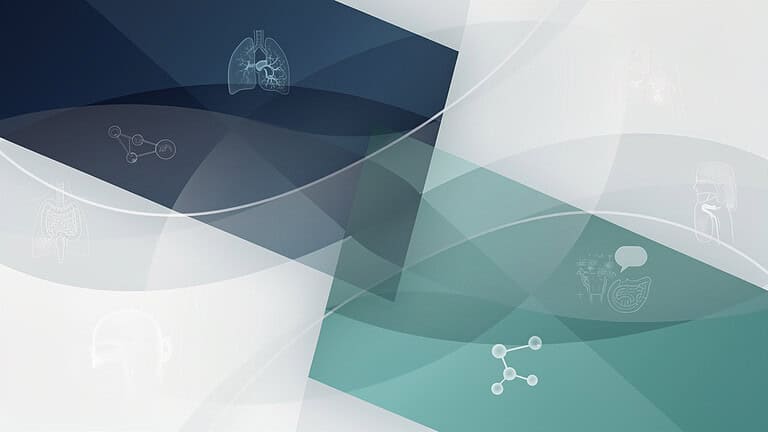Conquering the PESCI: Your Comprehensive Guide to Success in Australia
For International Medical Graduates (IMGs) aspiring to practice medicine in Australia, the Pre-Employment Structured Clinical Interview (PESCI) stands as a crucial gateway. This structured interview is designed to evaluate not just your clinical acumen, but also your communication skills, professional attributes, and suitability for the Australian healthcare system. Navigating the PESCI can feel like a daunting task, but with thorough preparation and a strategic approach, you can significantly enhance your chances of success. This comprehensive guide will delve into the intricacies of the PESCI, highlighting common pitfalls and providing effective strategies to help you confidently face this important assessment.
Understanding the PESCI: More Than Just a Medical Exam
The PESCI is not simply a test of your medical knowledge. It’s a multifaceted evaluation designed to determine your readiness to practice safely and effectively within the Australian healthcare context. Interviewers assess a range of competencies, including:
- Clinical Knowledge and Skills: Your ability to apply medical knowledge to clinical scenarios, formulate differential diagnoses, and develop appropriate management plans.
- Communication Skills: Your capacity to communicate clearly, concisely, and empathetically with patients, their families, and other healthcare professionals. This includes active listening, explaining complex medical information in an understandable manner, and demonstrating cultural sensitivity.
- Professionalism and Ethical Understanding: Your awareness of ethical principles, your ability to maintain professional conduct, and your understanding of the roles and responsibilities of a medical practitioner in Australia.
- Understanding of the Australian Healthcare System: Your familiarity with the structure, policies, and common health issues prevalent in the Australian healthcare landscape.
The structured format of the PESCI ensures that all candidates are assessed against the same criteria, providing a fair and objective evaluation of their suitability for practice. Understanding this framework is the first step towards effective preparation.
Navigating the Challenges: Common Reasons for PESCI Exam Failure
While strong medical knowledge is foundational, several factors can contribute to an unsuccessful PESCI outcome. Being aware of these common pitfalls allows you to proactively address them in your preparation:
- Communication Deficiencies: As many IMGs come from diverse linguistic backgrounds, communication can be a significant hurdle. This isn’t just about grammatical accuracy; it encompasses clarity of expression, appropriate terminology, and the ability to build rapport with simulated patients and interviewers. Difficulty in articulating your reasoning, asking culturally sensitive questions, or understanding nuanced communication cues can negatively impact your performance.
- Unstructured History Taking: A disorganized approach to history taking often signals a lack of clear diagnostic reasoning. Interviewers look for a focused, hypothesis-driven approach. Asking broad, unfocused questions wastes valuable time and doesn’t demonstrate your ability to efficiently gather relevant information.
- Lack of Familiarity with the Australian Healthcare Context: Case scenarios in the PESCI are often rooted in the realities of the Australian healthcare system. A lack of understanding of common local health issues, referral pathways, or relevant guidelines can leave you unprepared to address the specific nuances of a case.
- Inadequate Clinical Reasoning: Simply recalling medical facts is not enough. The PESCI assesses your ability to synthesize information, critically evaluate clinical findings, and formulate logical management plans. A failure to demonstrate sound clinical reasoning, even with adequate knowledge, can lead to an unfavorable outcome.
- Poor Time Management: The PESCI is a timed assessment. Inefficient history taking, rambling explanations, or getting stuck on specific details can lead to incomplete assessments and negatively impact your overall score.
- Lack of Professionalism: Demonstrating unprofessional behavior, such as being dismissive, argumentative, or lacking empathy, will raise concerns about your suitability to practice in a patient-centered healthcare system.
Strategies for Success: Mastering the PESCI Exam
Preparation is paramount to excelling in the PESCI. Here are effective strategies to guide your study and practice:
- Deep Dive into the Australian Healthcare System: Familiarize yourself with the structure of the Australian healthcare system, including Medicare, the Pharmaceutical Benefits Scheme (PBS), and the roles of different healthcare professionals. Understand common health conditions prevalent in Australia, including Indigenous health issues and culturally diverse populations. Resources like the Australian Institute of Health and Welfare (AIHW) website can be invaluable.
- Sharpen Your Communication Skills: This is non-negotiable. Practice speaking clearly and concisely. Focus on using appropriate medical terminology while ensuring it is understandable to a layperson. Engage in role-playing scenarios, focusing on active listening, empathetic responses, and culturally sensitive communication. Consider seeking feedback on your communication style from native English speakers or mentors.
- Master Structured History Taking: Adopt a systematic approach to history taking, such as the SOCRATES mnemonic for pain or the AMPLE framework for allergies, medications, past medical history, last meal, and events leading up to the presentation. Practice formulating a focused differential diagnosis early in the interaction and tailoring your questions to rule in or rule out possibilities.
- Refine Your Clinical Reasoning: Don’t just memorize facts; focus on understanding the underlying pathophysiology and applying your knowledge to clinical scenarios. Practice working through case studies, articulating your thought process, and justifying your diagnostic and management decisions based on evidence-based principles.
- Utilize Australian Clinical Guidelines and Resources: Familiarize yourself with key Australian clinical practice guidelines. Resources like the Australian Medicines Handbook (AMH) and relevant specialty-specific guidelines provide valuable insights into best practices within the Australian context. Demonstrating awareness and application of these resources during the PESCI showcases your commitment to evidence-based medicine.
- Practice Under Simulated Exam Conditions: Engage in realistic mock PESCI interviews with peers, mentors, or through structured preparation courses. This will help you get accustomed to the format, time constraints, and pressure of the actual exam. Seek constructive feedback on your performance and identify areas for improvement.
- Focus on Professionalism and Ethics: Review the ethical guidelines and codes of conduct for medical practitioners in Australia. Be prepared to discuss ethical dilemmas and demonstrate a patient-centered and professional approach in your interactions.
LearnMedicine.com.au: Your Partner in PESCI Success
At learnmedicine.com.au, we understand the unique challenges faced by IMGs preparing for the PESCI exam. Our comprehensive courses are specifically designed to equip you with the knowledge, skills, and strategies needed to excel. We offer:
- Targeted content aligned with the PESCI format and Australian healthcare standards.
- Interactive case studies and simulated interview scenarios to hone your clinical reasoning and communication skills.
- Expert guidance and feedback from experienced medical educators who understand the nuances of the PESCI.
- Resources and tools to help you navigate the Australian healthcare system and relevant clinical guidelines.
While this guide provides valuable insights, our structured courses at learnmedicine.com.au offer a more in-depth and personalized approach to your PESCI preparation. We are committed to helping you confidently navigate this crucial step towards your medical career in Australia.
Conclusion: Your Journey to Medical Practice in Australia
The PESCI exam is a significant milestone on your journey to practicing medicine in Australia. By understanding its format, being aware of common pitfalls, and implementing effective preparation strategies, you can significantly increase your chances of success. Remember to focus on developing strong communication skills, mastering structured clinical assessments, and familiarizing yourself with the Australian healthcare landscape. With dedication, strategic preparation, and the right resources, you can confidently face the PESCI and embark on a rewarding medical career in Australia. Consider exploring the comprehensive resources available at learnmedicine.com.au to further enhance your preparation and take a confident step towards your professional goals.


